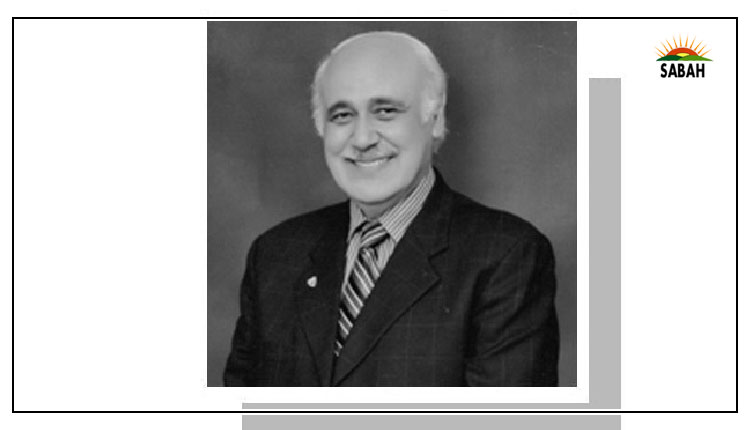Cultural invasions…F.S. Aijazuddin
LAST week, Karachi and Lahore were invaded by cohorts of culture. In Karachi, the Endowment Fund Trust, managed by A. Hamid Akhund and Hameed Haroon, reincarnated Alexander the Great by convening an international conference on his presence in western Punjab and Sindh, almost 2,300 years ago. Alexanders exploits were relived through the words of ancient scholars like Arrian and Plutarch, and modern historians including Dr Robin Lane-Fox, Dr Richard Sandeman, Dr Nadeem Tarar and Dr Abdul Hameed Baloch.
In 329 BCE, a 27-year-old Alexander crossed the Hindu Kush mountains. After defeating the local king Porus, he reached the Beas. He would have continued into mainland India (that possible paradise the dreamt of place) had his Greek troops not mutinied. Reluctantly, he travelled southwards, encountering fierce opposition by the Mallois at Multan and later enduring the unspeakable rigours of crossing the Makran desert. He quit India for Persia in 325 BCE, having spent just over three years here. What was it then about this restless Macedonian that has made him a continuing inspiration for generations of historians, writers, poets, dastangohs, even actors in Hollywood and Bollywood? Did he come here to test his tutor Aristotles view that barbarian nations, like cattle, need the hand of a cultured person [ie a Greek] to get the best out of them?
Alexander was driven not by material ambition but by his inner pothos the yearning to excel. Alexander died young. As he said of himself: I do not count my years but my victories.
Scholars from Greece joined their British and Pakistani colleagues at the conference to read papers on Alexanders strategy, his journey down the Indus, his DIY navy, admiral Nearchus voyage along the Makran coast, and the enduring Hellenic legacy still visible in Gandharan sculpture.
I do not count my years but my victories.
One unexpected question from the audience expressed doubt whether Alexander was simply a composite of many Alexanders whose exploits over time have been woven into one single identity. A former archaeologist argued that despite years of investigation, she had not been able to find any trace of Alexanders presence in Sindh.
The scholars who had spent their careers studying his life assured her that there was much evidence albeit secondary to confirm his existence. Historians cannot have been so wrong for 2,300 years.
On Feb 24, the participants travelled to Sehwan to visit the fort associated with Alexander. The previous evening featured a performance by the neo-legendary Abida Parveen. She sang with exuberance, conquering her audience, proving that greatness is not an Alexandrian prerogative.
In Lahore, over three days, the Lahore Literary Festival celebrated its 10th anniversary. In making it happen, its prime mover Razi Ahmed has shown more fortitude than Alexander did, for Razi and his LLF team have had to surmount the same obstacles every year. This years LLF was a cornucopia of academic richness: the Nobel Laureate Abdulrazak Gurnah, Booker prize winners Daisy Rockwell and Damon Galgut, famed photographer Raghu Rai, historians of the Ottomans and the Mughals, artists, architects, designers, travel writers, gourmets, and poets.
Two former prisoners recalled their incarceration one for five years by the Taliban, and another for two years after his fall from grace from the top of the bureaucracys greasy pole.
Seventy or so crowded sessions filled the three days. Two sessions in particular transported listeners into a higher empyrean.
The first was a presentation by Alejandro Vergara, senior curator of Madrids Prado Museum. He traced the origins of that superb collection from its seminal aggregation by King Philip II, through subsequent accretion by his royal successors, and finally its conversion into a state museum. Mr Vergaras presentation unconsciously echoed the spirit of LLF itself private patronage applied towards public benefit. The second event that uplifted the spirit was the concluding dialogue between Fawad Hasan Fawad (once principal secretary to two PMs) and Chaudhry Aitzaz Ahsan (former interior minister under Benazir Bhutto). Both had served in high positions in Islamabad. Both served jail time where they wrote poetry, as did two other poetic jail-birds Faiz Ahmed Faiz and Habib Jalib.
A questioner asked whether captivity inspires creativity. Not always, but solitary confinement can be a wonderful stimulant to a prisoners grey cells. The LLF as usual attracted a large number of visitors. The Alhamra complex buzzed with purpose and informed participation. An addition however was noticeable a new breed of security guards branded Bouncers.
Which agitators did they hope to evict? The rebellious Faiz sahib, or Habib Jalib? Death has already evicted them. Fortunately, the defiant poetry of Aitzaz and Fawad clearly passed over the heads of these misplaced gatekeepers.
The writer is an author.
www.fsaijazuddin.pk
Courtesy Dawn, March 2nd, 2023












